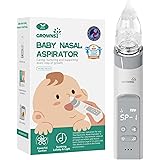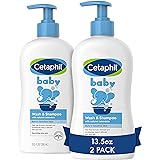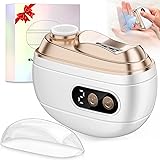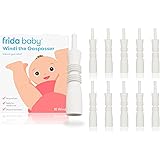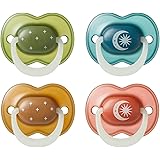Imagine a scenario where your baby, just a few weeks old, cries inconsolably for hours, their tiny face red and their fists clenched. As a parent, such moments can be incredibly distressing, often leading to a frantic search for any remedy that might offer comfort. In these challenging times, traditional remedies like gripe water often surface in conversations or online searches. However, as the video above succinctly conveys, the use of gripe water for infants is generally not recommended by medical professionals.
This article aims to delve deeper into the reasons behind this cautious stance, exploring the potential risks associated with gripe water, its impact on your baby’s delicate digestive system, and what pediatricians advise instead. A comprehensive understanding of infant colic and effective, safe soothing strategies can significantly reduce parental stress and ensure your baby’s well-being.
Gripe Water: Unpacking the Concerns for Infant Health
The notion that gripe water can alleviate infant discomfort, particularly colic, has been passed down through generations. Nevertheless, a closer look reveals a consensus among pediatric experts: gripe water is not advised for babies. This recommendation stems from a variety of factors, primarily concerning the safety and efficacy of its ingredients.
Historically, certain formulations of gripe water have contained alcohol, dill oil, fennel oil, ginger, chamomile, and even bicarbonate of soda. Some of these ingredients, even in small doses, can pose risks to a newborn’s undeveloped system. For instance, the alcohol content in older versions was clearly problematic, while modern formulations often contain high sugar levels, which are unsuitable for infants and can contribute to dental issues later on.
More Risks Than Benefits: Why Pediatricians Advise Caution
The core message regarding gripe water is that its potential risks often outweigh any perceived benefits. Unlike medications prescribed by a doctor, gripe water products are typically classified as dietary supplements. This classification means they are not subjected to the same rigorous testing and approval processes by regulatory bodies as pharmaceutical drugs.
Consequently, there is a lack of standardized production, and ingredient lists can vary significantly between brands and even batches. This inconsistency makes it challenging for parents and medical professionals to be certain about what exactly is being administered to an infant. Furthermore, the absence of robust clinical trials specifically proving the safety and effectiveness of gripe water for infantile colic is a significant concern for pediatricians.
Potential for Upsetting the Baby’s Tummy
One of the key reasons gripe water is not recommended is its potential to upset a baby’s delicate digestive system. While often marketed as a digestive aid, some of its components can inadvertently cause adverse reactions. Imagine if a baby’s immature digestive tract, still learning to process basic milk, is introduced to various herbal extracts, preservatives, or sweeteners.
This could lead to symptoms such as gas, bloating, constipation, or even diarrhea, ironically worsening the very discomfort it intends to alleviate. The osmolality of some gripe water products, referring to the concentration of dissolved substances, can also be high, potentially causing osmotic diarrhea in sensitive infants.
The Delicate Balance: Gut Health and Gripe Water
A crucial concern highlighted by pediatricians pertains to the impact of gripe water on an infant’s developing gut microbiota. This complex ecosystem of microorganisms in the intestines plays a vital role in digestion, nutrient absorption, and immune system development. From birth, a baby’s gut flora begins to establish itself, influenced by factors like mode of delivery and feeding choices (breast milk or formula).
Introducing external substances, especially those with diverse herbal components or preservatives found in some gripe water formulations, can potentially disrupt this delicate balance. Consequently, the healthy colonization of beneficial bacteria might be hindered, or an overgrowth of less desirable bacteria could occur. This imbalance in the gut microbiota, sometimes referred to as dysbiosis, is increasingly linked to various health issues later in life, making early infant gut health a paramount concern.
Understanding Colic: A Normal Developmental Phase
When a baby cries excessively, often uncontrollably, it is natural for parents to feel alarmed and seek immediate solutions. However, it is essential to understand that in many cases, this behavior is attributed to colic, which is generally not a serious medical condition. Colic is typically defined by the “Rule of Threes”: crying for more than three hours a day, at least three days a week, for more than three weeks in an otherwise healthy and well-fed infant.
This phase is indeed an evolving one, typically peaking around 6 weeks of age and often resolving on its own by 3 to 4 months. Despite its distressing nature, colic is considered a normal part of infant development for many babies. It is thought to be related to an immature digestive system, developing nervous system, or simply a baby’s unique temperament and way of expressing discomfort as they adjust to the world outside the womb.
Navigating Infant Discomfort: Alternatives to Gripe Water
For mothers and fathers facing the challenges of an inconsolable baby, the message “no need to get stressed” is often easier said than done. However, understanding that colic is usually transient and exploring safe, evidence-based soothing methods can be immensely empowering. Several strategies are routinely recommended by pediatricians to help manage infant discomfort without resorting to products like gripe water.
Firstly, ensuring your baby is well-fed, burped, and has a clean diaper can rule out basic discomforts. Beyond that, a range of soothing techniques can be employed. These include:
- Gentle rocking or swaying, either in your arms or a swing.
- Swaddling, which mimics the snugness of the womb.
- Skin-to-skin contact, which can be incredibly calming for both parent and baby.
- A warm bath or a gentle abdominal massage in a clockwise direction.
- A pacifier, which can satisfy a baby’s sucking reflex.
- Walking with your baby in a carrier or stroller.
- White noise or calming music, which can provide a consistent auditory environment.
In cases where fussiness is accompanied by other symptoms like fever, vomiting, poor feeding, or unusual lethargy, it is imperative to consult a pediatrician immediately. These could be signs of a more serious underlying issue that requires medical attention, and expert guidance will always be prioritized.
The Pediatric Perspective: Why Caution is Key
The consistent stance of pediatricians against the routine use of gripe water for babies is rooted in a commitment to evidence-based care and the protection of infant health. Given the lack of robust scientific data supporting its safety and efficacy, combined with the potential for adverse effects on a developing digestive system and gut microbiota, a conservative approach is adopted.
Consequently, medical professionals encourage parents to seek personalized advice when dealing with infant discomfort. A pediatrician can help differentiate between normal colicky behavior and symptoms that might indicate an underlying medical problem. This ensures that genuine issues are addressed promptly, and parents are guided towards safe and effective methods for comforting their little ones. It empowers parents to navigate the complexities of infant care with confidence, supported by trusted medical expertise rather than unproven remedies like gripe water.
Sorting Fact from Fiction: Your Gripe Water Q&A
What is gripe water?
Gripe water is a traditional remedy sometimes used for infant discomfort, particularly colic, but it is generally not recommended by medical professionals.
Is it safe to give gripe water to my baby?
Pediatricians typically do not recommend gripe water for infants due to potential risks, including untested ingredients and adverse effects on a baby’s developing digestive system.
Why do pediatricians advise against gripe water?
Gripe water products are not rigorously tested like medications, can contain ingredients unsuitable for infants, and may disrupt a baby’s delicate gut health.
What are some safe ways to soothe a fussy baby instead of using gripe water?
You can try gentle rocking, swaddling, skin-to-skin contact, a warm bath, or providing white noise to help comfort your baby.



